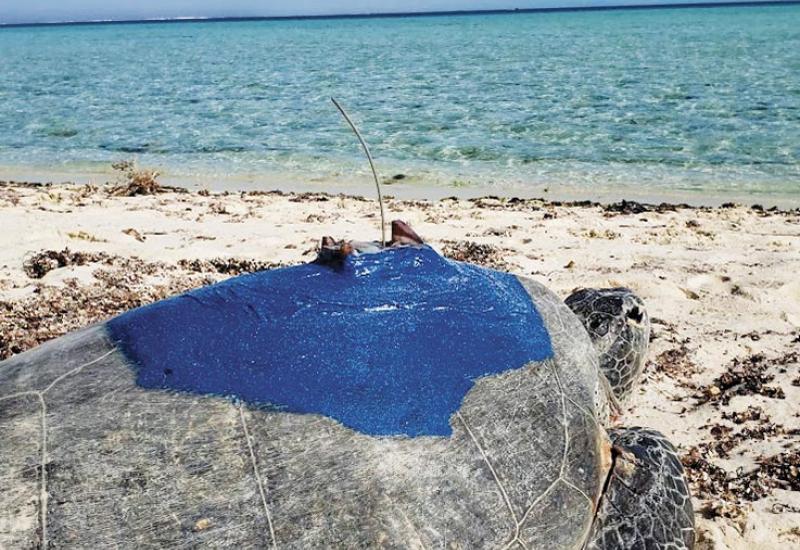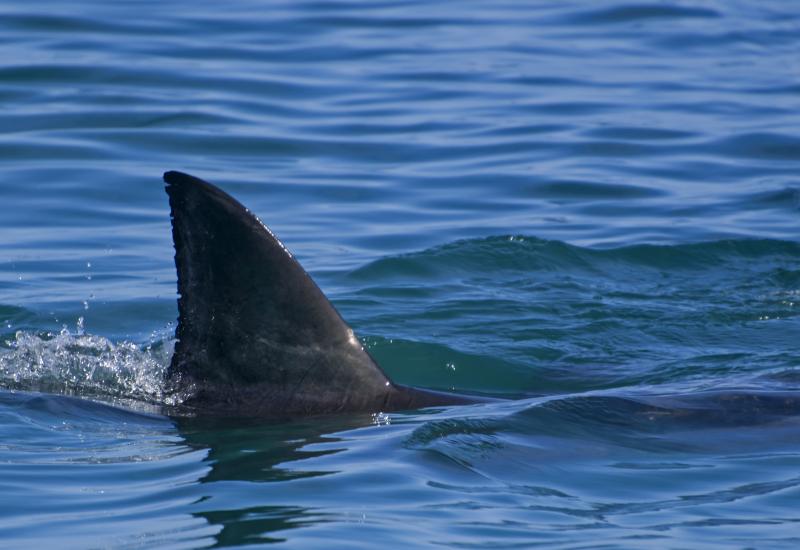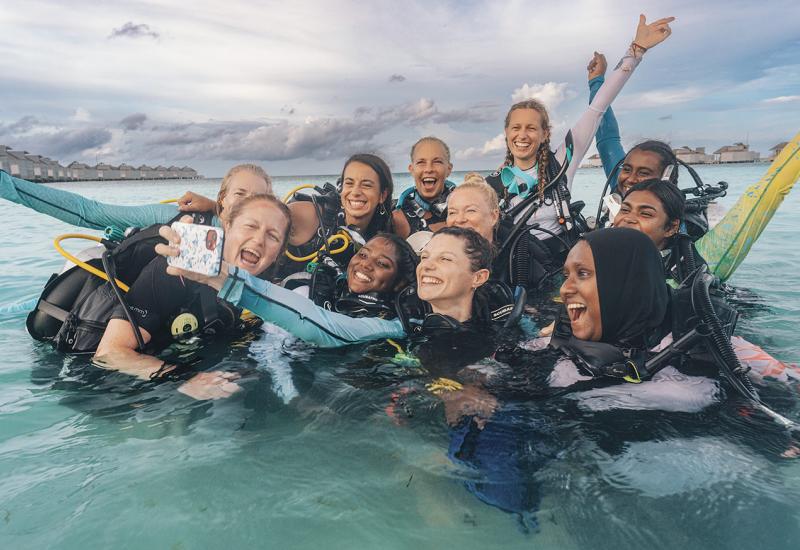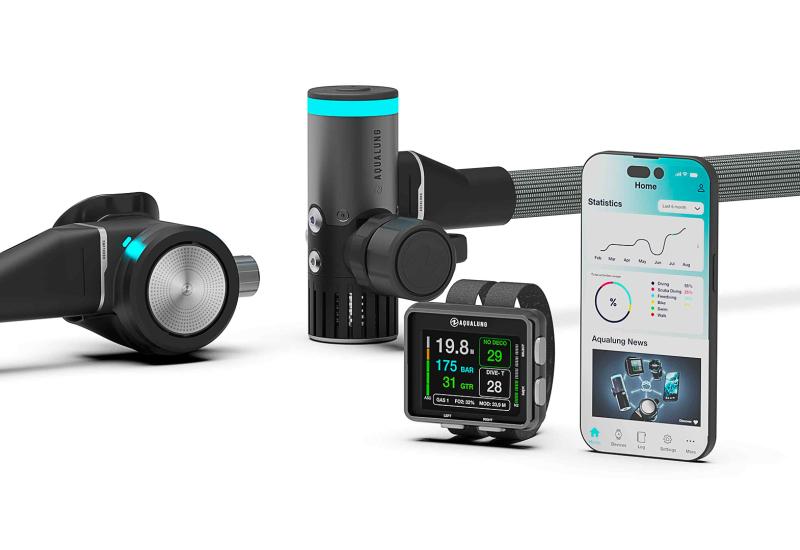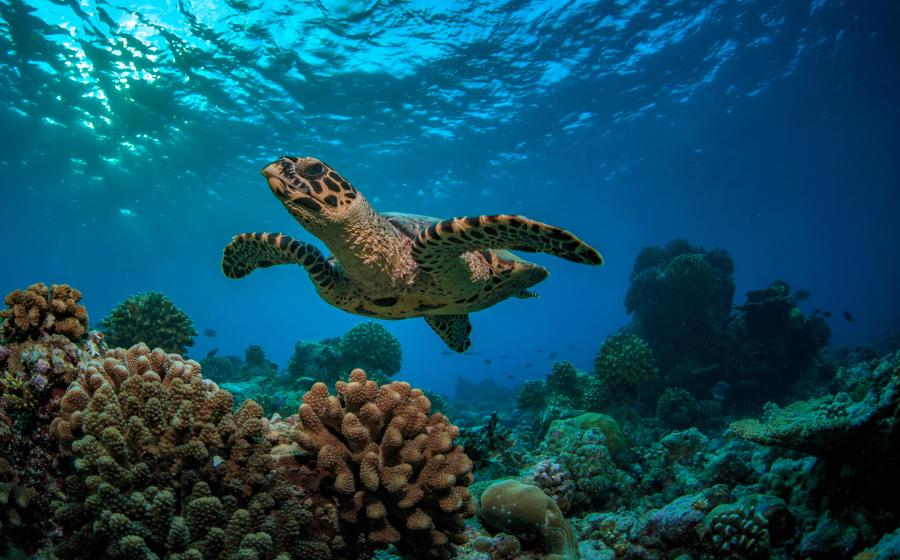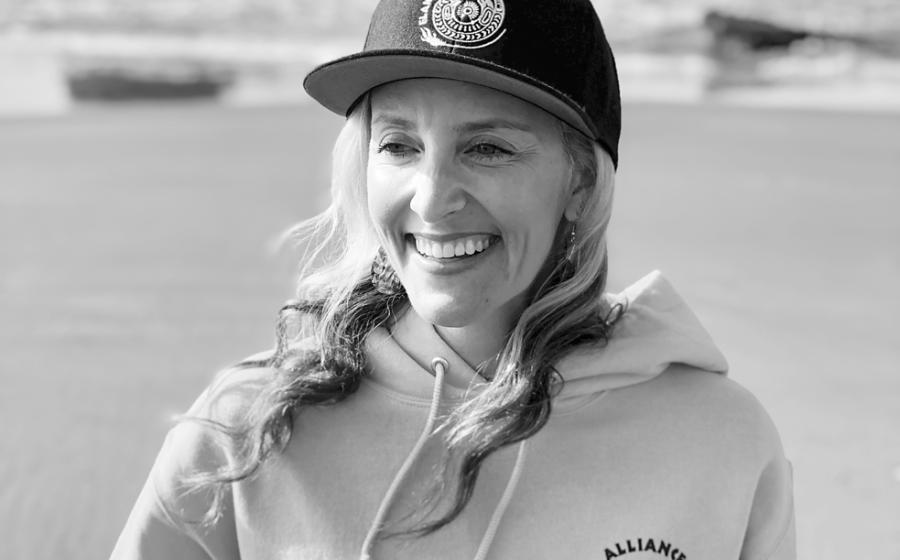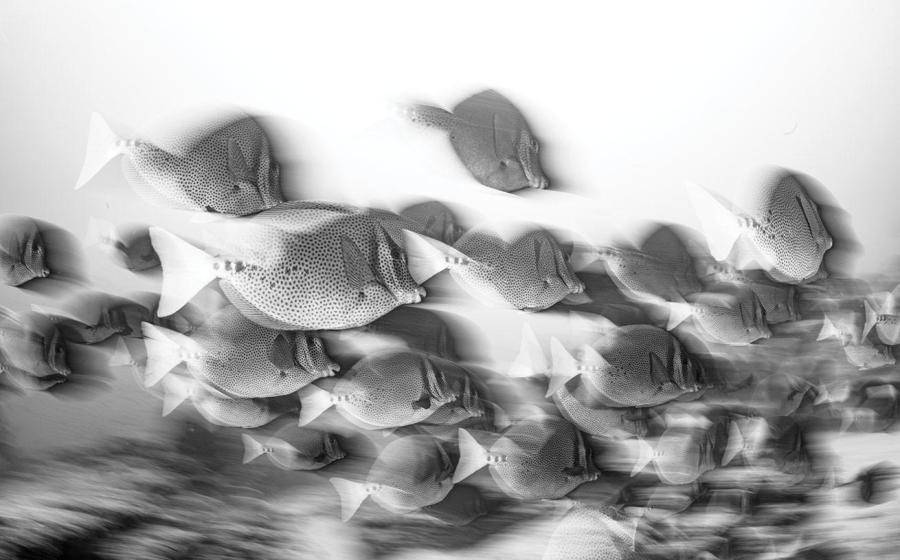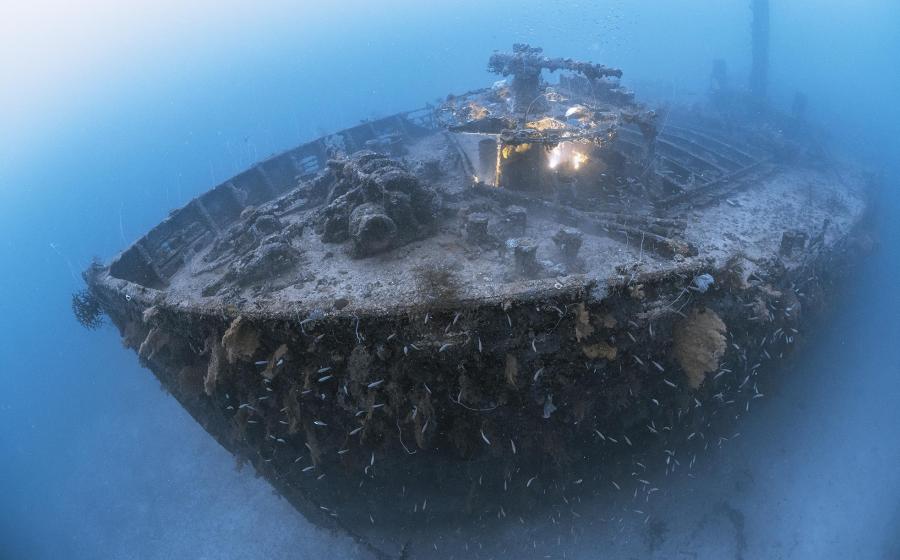Help on the Horizon
By Cimeron Morrissey Since the April 20th explosion of BP’s Deepwater Horizon platform, the broken well has spewed between 89 to 176 million gallons of oil into the Gulf of Mexico, according to federal estimates. Governmental and nonprofit organizations are mobilizing volunteers to help protect the water, wildlife and coastline that lie in the path of the oil. Here’s what you can do to reduce the oil spill’s impact on dive sites, fragile ecosystems, marine life and the people whose livelihood depend on these natural resources:
Marine Environments
- Reduce stress to Florida’s reefs by cleaning up debris. Removing debris helps strengthen the health of the reefs and makes them better able to survive other stresses, such as oil, should it reach them. According to Stan Senner, Ocean Conservancy’s Director of Conservation Science, “Things like marine debris are all the more of a concern when they have oil on them, so cleaning it up before there is any oil provides double value in doing it ahead of time.” Looe Key Reef Resort and Dive Center regularly organizes reef cleanups throughout the Keys —volunteers can hop on board and dive for free. www.DiveFlaKeys.com, 877-816-3483, [email protected].
- Report sightings of oil or other unusual events to the Marine Ecosystem Event Response Assessment (MEERA). If you’re diving in the Florida Keys or surrounding waters and see anything out of the ordinary— from tar balls to dead fish — report it to MEERA by using their online report form: http://isurus.mote.org/Keys/meera/meera_report_form.phtml
- Volunteer your vessel to help skim oil. Contact 281-366-5511, 866-279-7983 or 877-847-7470
- Become a BleachWatch volunteer observer for Florida’s reefs. Help monitor the reef by joining the Florida Keys Coral Bleaching Early Warning Network (BleachWatch). Training seminars are held on Key West and Islamorada. By becoming a BleachWatch volunteer, you’ll help with early detection and also assist researchers assess where and when bleaching is occurring, what species are more vulnerable, and recovery potential. For more info, go to http://isurus.mote.org/Keys/bleaching.phtml
- Florida residents can buy the “Protect Our Reef” specialty license plates. Proceeds support Florida’s reefs through research and education programs.
- Donate to the National Marine Sanctuary Foundation to help preserve, protect and promote meaningful opportunities for public interaction with the nation’s marine sanctuaries: http://nmsfocean.org
- Use good diving etiquette to eliminate stress on coral. Coral needs all its natural defenses, especially if there’s a chance they could be exposed to oil. Practicing good diving etiquette will help protect the coral, so be sure to minimize physical impact with reefs.
Wildlife
- Report sightings of injured or oiled animals. Contact the Wildlife Distress Hotline at 866-557-1401
- Donate to help wildlife impacted by the oil spill. National Wildlife Foundation is now accepting donations via mobile phones: Text "WILDLIFE" to 20222 to donate $10.
- Volunteer with or donate items to Florida’s Suncoast Seabird Sanctuary. The sanctuary, which is the largest wild bird hospital in the U.S., is in need of volunteers. They need linens, kennels, towels, sheets, paper towels and Dawn detergent to help oiled birds. Contact the sanctuary for more information at www.seabirdsanctuary.com
Dive Shops and Operators
- Book a dive trip to Florida to help dive businesses stay afloat. Click on this link to find locations, dive operators, trip reports and dive deals: www.scubadiving.com/travel/north-america/florida-the-florida-keys
- Promote dive tourism. Help get the word out that Florida is still open for business and its dive sites are as beautiful as ever by posting your photos of your Florida dives to: http://www.visitflorida.com/floridalive
Coastline and Marshes
- Participate in shoreline debris cleanups. Since debris provides a surface to which tar balls can cling and makes oil cleanup even more challenging, it’s important to eliminate shoreline trash and waste before any oil washes up on coastlines. You can volunteer to be part of Florida beach, mangrove and marsh clean-up by signing up at www.volunteerfloridadisaster.org
- Help monitor the 1.2 million feet of boom to contain oil. The public’s help is needed to report on boom that is not functioning properly or that has washed ashore. To report an incident, call 866-448-5816.
- Become an on-call volunteer with Mote Marine Laboratory. By becoming an on-call volunteer with Florida’s Mote Marine Laboratory, you will be contacted if oil impacts the Keys and volunteers can help with protection or clean-up efforts. Sign up at www.mote.org/index.php?src=forms&ref=Gulf%20of%20Mexico%20Oil%20Spill%20Response%20Sign%20Up
- Report sightings of oiled shoreline in Florida. Contact the State Warning Point: 877-2-SAVE-FL (877-272-8335). Or 866-448-5816, which is BP’s Community Support Team Hotline.
- Volunteer to help restore Southern Louisiana coastline. Sign up with the Coalition to Restore Coastal Louisiana at www.crcl.org. They welcome everyone, but are in particular need of volunteers with HAZWOPER training, and those with experience operating boats, handling wildlife, photographing and monitoring oil movement.
- Volunteer to help clean up Alabama’s coastline. The Alabama Coastal Foundation is collecting contact information from volunteers for cleanup efforts along the Alabama coast should the oil spill reach the state's shores. Call 251-990-6002.
By Cimeron Morrissey Since the April 20th explosion of BP’s Deepwater Horizon platform, the broken well has spewed between 89 to 176 million gallons of oil into the Gulf of Mexico, according to federal estimates. Governmental and nonprofit organizations are mobilizing volunteers to help protect the water, wildlife and coastline that lie in the path of the oil. Here’s what you can do to reduce the oil spill’s impact on dive sites, fragile ecosystems, marine life and the people whose livelihood depend on these natural resources:
Marine Environments
- Reduce stress to Florida’s reefs by cleaning up debris. Removing debris helps strengthen the health of the reefs and makes them better able to survive other stresses, such as oil, should it reach them. According to Stan Senner, Ocean Conservancy’s Director of Conservation Science, “Things like marine debris are all the more of a concern when they have oil on them, so cleaning it up before there is any oil provides double value in doing it ahead of time.” Looe Key Reef Resort and Dive Center regularly organizes reef cleanups throughout the Keys —volunteers can hop on board and dive for free. www.DiveFlaKeys.com, 877-816-3483, [email protected].
- Report sightings of oil or other unusual events to the Marine Ecosystem Event Response Assessment (MEERA). If you’re diving in the Florida Keys or surrounding waters and see anything out of the ordinary— from tar balls to dead fish — report it to MEERA by using their online report form: http://isurus.mote.org/Keys/meera/meera_report_form.phtml
- Volunteer your vessel to help skim oil. Contact 281-366-5511, 866-279-7983 or 877-847-7470
- Become a BleachWatch volunteer observer for Florida’s reefs. Help monitor the reef by joining the Florida Keys Coral Bleaching Early Warning Network (BleachWatch). Training seminars are held on Key West and Islamorada. By becoming a BleachWatch volunteer, you’ll help with early detection and also assist researchers assess where and when bleaching is occurring, what species are more vulnerable, and recovery potential. For more info, go to http://isurus.mote.org/Keys/bleaching.phtml
- Florida residents can buy the “Protect Our Reef” specialty license plates. Proceeds support Florida’s reefs through research and education programs.
- Donate to the National Marine Sanctuary Foundation to help preserve, protect and promote meaningful opportunities for public interaction with the nation’s marine sanctuaries: http://nmsfocean.org
- Use good diving etiquette to eliminate stress on coral. Coral needs all its natural defenses, especially if there’s a chance they could be exposed to oil. Practicing good diving etiquette will help protect the coral, so be sure to minimize physical impact with reefs.
Wildlife
- Report sightings of injured or oiled animals. Contact the Wildlife Distress Hotline at 866-557-1401
- Donate to help wildlife impacted by the oil spill. National Wildlife Foundation is now accepting donations via mobile phones: Text "WILDLIFE" to 20222 to donate $10.
- Volunteer with or donate items to Florida’s Suncoast Seabird Sanctuary. The sanctuary, which is the largest wild bird hospital in the U.S., is in need of volunteers. They need linens, kennels, towels, sheets, paper towels and Dawn detergent to help oiled birds. Contact the sanctuary for more information at www.seabirdsanctuary.com
Dive Shops and Operators
- Book a dive trip to Florida to help dive businesses stay afloat. Click on this link to find locations, dive operators, trip reports and dive deals: www.scubadiving.com/travel/north-america/florida-the-florida-keys
- Promote dive tourism. Help get the word out that Florida is still open for business and its dive sites are as beautiful as ever by posting your photos of your Florida dives to: http://www.visitflorida.com/floridalive
Coastline and Marshes
- Participate in shoreline debris cleanups. Since debris provides a surface to which tar balls can cling and makes oil cleanup even more challenging, it’s important to eliminate shoreline trash and waste before any oil washes up on coastlines. You can volunteer to be part of Florida beach, mangrove and marsh clean-up by signing up at www.volunteerfloridadisaster.org
- Help monitor the 1.2 million feet of boom to contain oil. The public’s help is needed to report on boom that is not functioning properly or that has washed ashore. To report an incident, call 866-448-5816.
- Become an on-call volunteer with Mote Marine Laboratory. By becoming an on-call volunteer with Florida’s Mote Marine Laboratory, you will be contacted if oil impacts the Keys and volunteers can help with protection or clean-up efforts. Sign up at www.mote.org/index.php?src=forms&ref=Gulf%20of%20Mexico%20Oil%20Spill%20Response%20Sign%20Up
- Report sightings of oiled shoreline in Florida. Contact the State Warning Point: 877-2-SAVE-FL (877-272-8335). Or 866-448-5816, which is BP’s Community Support Team Hotline.
- Volunteer to help restore Southern Louisiana coastline. Sign up with the Coalition to Restore Coastal Louisiana at www.crcl.org. They welcome everyone, but are in particular need of volunteers with HAZWOPER training, and those with experience operating boats, handling wildlife, photographing and monitoring oil movement.
- Volunteer to help clean up Alabama’s coastline. The Alabama Coastal Foundation is collecting contact information from volunteers for cleanup efforts along the Alabama coast should the oil spill reach the state's shores. Call 251-990-6002.

